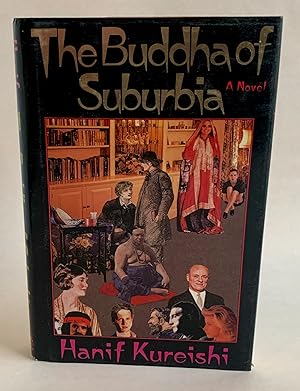
The narrative centres on Karim, a young half-Asian, half-white boy on the cusp of adulthood, while his father, Haroon – played by the indomitable Roshan Seth – moonlights as a spiritual guru for his suburban neighbours. Its light-hearted pomp together with a workman-like storyboard, taps into the living-room theatre of viewership in which broadcast television thrives, allowing passing interest to develop into animated involvement. Reengaging with the series today feels both comforting and urgent.

The series, directed by Roger Mitchell and written by Hanif Kureishi, has been streaming over the past few months on BBC iPlayer after a period of relative obscurity, at least compared to Kureishi’s more successful film outings My Beautiful Launderette (1985) and My Son the Fanatic (1997). It was also my parents' world of the 1980s, where second-generation London Indians were the penetrating subcultures of the inner city. This was my world, growing up in suburban Croydon. The endearing unhingedness of Changez the earnest courage of Jamila the perceptive cynicism of Karim's father Haroon and the snipes and swipes at middle England were all too recognisable. The narrative of both the series and the book is anchored by a naivety, panache and the characters’ incremental realisations, keeping a tightness of feeling through the disparate storylines and characters. Watching, in my late teens, this nervous, self-effacing, adventurous brown boy, played by Naveen Andrews, stomping around familiar suburbs with flares, long hair and open-buttoned shirts was a novel and riveting experience. Karim – Kreamy – was of course the initial draw.

I suspect it was the series, though the two complement each other so well it feels like a contiguous space, a world so expertly depicted that it blurs between mediums.

I don’t remember if I watched The Buddha of Suburbia series first or read the book.


 0 kommentar(er)
0 kommentar(er)
